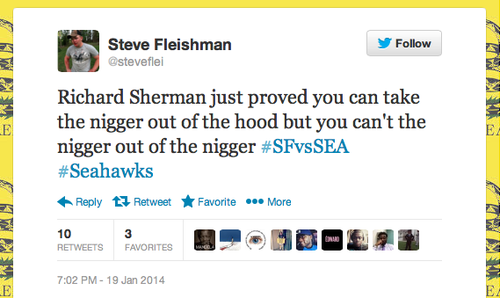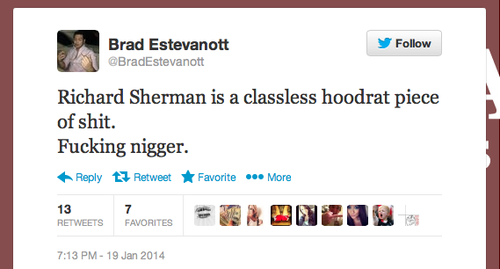Hey all...
This is the first short story I've written in a number of years. I had considered selling it on Kindle or something, but the process is simply too complicated right this second. There are so many hoops to jump through. Sigh. So instead, I will share this story with you, free of charge, right here. I present to you, "The Caller."
The Caller
Franklyn C. Thomas
“This is Midnight Hour on WVYR radio, New York, and I’m your
host John Benson.” The deejay’s voice
was smooth and laid back, like a weed or cognac buzz, and blended well with the
rainy summer night. “Guess what,
y’all? It’s Friday night, and time for
another ‘Fess Up Friday’ on the Midnight Hour, and you know what that
means. For all of you out there who
decided to stay in on this nasty Friday night, I’m your conscience. I’m your priest, I’m your pusher, and I’m
your reflection. So anyone who has
something to get off their chest, give us a call at 718-917-WVYR.” John took a sip of his black coffee, no
sugar, and saw a couple of lines light up on the telephone. “And who do we have tonight, Rosie?”
Rosie, the pretty, light-skinned woman in the booth with
John looked at the computer display that had the name of all the pre-screened
callers – or for the cowards, the name they wanted to be called on air – and
what they had to say. “We have
Juliette,” she said in a smooth, jazz singer’s voice, registering a perfect C
with every word, “and she’s confessing about Spring Break to her parents.”
John flipped on the speakerphone. “Go ahead, Juliette,” he said in his best
soothing voice, calmly sipping his coffee, “What have you got to confess?”
“Well,” the caller began with a slight Southern twang to her
high pitched voice, “this year for Spring Break, I told my parents and my
boyfriend I was going to Miami with the girls.”
“Did you?”
“No,” she sighed. “I
went to Jamaica, with a couple of dudes I know from school.” She took another sigh and hesitated for a
second. “We partied a lot, and you know,
one thing led to another, and…”
“Juliette?” John asked.
“Did you cheat on your boyfriend?”
Juliette was silent on the other line for a moment. “I’m sorry,” she said. “I want him to know that. I didn’t want to hurt anyone.”
“Is he listening?”
“I don’t know. I hope
so.” She took a deep breath. “I made a mistake,” she said, sounding more
relieved. “I just wanted him to know and
hopefully forgive me. Thanks a lot.” And
with that, she hung up the phone.
“Well, there we go.
Juliette wants to apologize to her Romeo for her indiscretions, and
hopes he will forgive her.” John paused
to take another sip of coffee. “For
those of you tuning in, this is John Benson on WVYR radio, 940 on your AM dial
in New York, 12:08 AM on the Midnight Hour.
Who’s up next, Rosie?”
John looked up to Rosie in the production booth. Her normally cool demeanor was gone as she
seemed agitated and distraught. That’s
odd, John thought. Rosie doesn’t usually
clam up like that.
“We… we have Paul,” she finally said, after a
too-long-for-radio silence. “And he’s
confessing to…” Rosie looked like she
was about to break down.
Without missing a beat, John pressed the button for line
2. “Go ahead, Paul,” John said. “We’re listening.”
“Uh, hello, John.”
Paul’s voice came across shaky and nervous, and was unusually high for a
man’s voice. He can’t be any more than
25, judging from the voice, John thought.
Paul took a deep sigh.
“First time caller, long-time listener.”
There was a slight slur in his voice, barely noticeable but definitely
there. “I’m gonna confess something to
you, John.” He sighed again, exhaled
deeply. Wind swirled in the background,
and the sound of rain came over the radio like static.
“Paul,” John said, “where are you? There’s a lot of static there.”
“I’m on the roof of my apartment building. I’m going to jump, but first, I want to confess. I’ve killed.”
John’s heart jumped into his throat, and threatened to crawl
out of his mouth, before he managed to swallow it as well as the urge to say
“oh shit.” He glanced up at Rosie, who
still had the terrified and dumbfounded look on her face. He covered the mic and mouthed call the cops
to her.
“What happened, Paul?” John said after two or three
seconds. “Who did you kill?”
“I’ve killed, John,” Paul repeated. “I’ve killed a lot. I’ve killed dozens of men, women, and
children. Especially children.”
A chill crept up John’s spine as he heard this. “By killed, do you mean…” He hesitated, trying to find a better word
than murder. “Did you commit a crime,
Paul?”
Paul was silent for a moment.
“Paul? Are you
there?”
“They shouldn’t have been there,” Paul whimpered, “and I
killed them. I had a good reason, but
every time I think about, it don’t seem like that good a reason.” Paul sniffled a bit. “I don’t know what to do.”
“Paul, calm down.
Take me through it slowly. When
did all this happen?”
“Two years ago,” he said, and choked up. His breathing was heavy on the line.
“It’s okay, Paul,” John said. “No judgments here.”
“Two years ago, I was on deployment in Afghanistan.”
John exhaled low and deep.
“You’re a soldier,” he said.
“Yes. A Marine. Well, I used to be.” He took another deep breath. “It was my last day, John, my last day. I had done three tours, and after they got
bin Laden, they started sending us home.
My unit had been embedded for eighteen months, scouring caves for that
son of a bitch. Oh!” Paul cleared his
throat. “Can I-can I say that on the
air?”
John laughed slightly.
“That’s our problem, not yours.
We’re on a four-second delay.”
Paul breathed another deep breath and John leaned back in his seat. “Please keep going.”
“After they killed him, God bless those guys, we were called
back. There was no more need for our
unit, so we were directed back to Kandahar, and waiting to be sent back
home.” Paul choked up a bit, cleared his
throat. “It’s a beautiful night out, John,”
he said. The slur in his voice was more
noticeable now, and John realized his caller was still drinking.
“Yes it is,” he said.
“What are we having tonight?”
There was a pause on the other line, and the noises of the
street came through loud and clear.
“Single malt, aged 25 years. My
dad gave it to me when I got back.
Tastes like shit, but it’s better than the stuff we had on the base.” Another pause on the line, and John imagined
Paul taking another gulp. “I was never a
scotch drinker, though.”
“I hear it’s an acquired taste.” The noise in the background intensified and
sirens came through the speakers, mingled in with the raindrops and the rest of
the summertime road noise.
“Are those sirens?”
“It’s New York at 12:25 in the morning, Paul,” John
said. “Of course those are sirens.” Paul laughed.
“so what happened?”
“I was in Afghanistan for eighteen months, John. Didn’t see any combat, never fired my
gun. There was a war going on, and I was
like a bystander.” Another pause,
another swig. “My unit and I, we were
the lucky ones. One day this kid comes
by, a little girl, maybe nine years old.”
Paul stopped again and could be heard sobbing on the air. He took a breath to compose himself. “This happened all the time, you know. Local kids from the city and the villages
visiting the base. It’s not all like
what you see on the news, they don’t all hate us. So this little girl wanders onto the base,
and no one pays her any mind until we here a man’s voice yell out ‘Allah
Akhbar!’ I was standing maybe, twenty
feet from her, and she exploded.” The
sobs were rolling now and Paul didn’t even attempt to hide them. John felt a tear roll down his cheek as well.
“Suicide bombing,” John said.
“It was a little girl,” Paul said. “Next thing I know, there’s gunfire and
before the dust settled four of the ten guys in my unit were dead. I took one to the arm, one to the calf. Me and my CO Joe Ryker take cover in the
base, we look out and…” Paul sobbed and
hissed through his teeth. Sirens in the
background grew louder. “Why are there
so many sirens going off?” Paul asked.
“Don’t worry about them,” John said. “I need you with me, Paul.”
“Oh, jeez, are they here for me?” Paul’s breathing grew ragged and heavy. “They’re coming for me, aren’t they?”
“Calm down, Paul.”
Some of the smooth went out of John’s voice. “We don’t want you to do anything rash. No one’s coming to get you. Talk to me, man, just keep talking.” John felt his heart race as he heard nothing
but street noise and sirens from the other end.
“Paul,’ he said, more urgently, “are you still there?”
Ragged breath could be heard through the speakers. “Yes,” Paul said, panting. “Yes, I’m here.” He took a couple more short breaths. “What’s happening? Why are there cops here? Why are there paramedics here?”
“Sir, stand back from the edge!” The voice was amplified by a bullhorn and was
scrambled by the cell phone’s tiny mic.
It came over the speakers in the booth tinny and distorted.
“Paul?” John’s voice caught in his throat. “Paul, what’s going on? Talk to me.”
“Th-there’s cops,” the young man said. “Ambulances.” Two short breaths. “Shit. Did you call the cops?”
“Paul, you’re on a live radio broadcast, using a cell phone,
and you opened with the fact that you killed people and wanted to kill
yourself.” John let that sink in for a
moment while he tried to find the right words to avoid telling a lie. “The police coming to you was inevitable.”
Over the speaker was a loud bang that sounded like the door
to the roof being kicked open. Yelling
came through the speakers and an authoritative voice was clearly heard saying
“Sir, step away from the ledge and put your hands on your head.”
“Paul, are you there?” John said. None of the cognac buzz remained in his voice
and he gripped the microphone in the booth.
“Paul! Paul, listen to me, no one
thinks you’re a killer. You’re a
soldier. You’re a hero. Finish your story and the police will
understand!”
“No!” Paul shouted.
“They were kids! The ones
shooting at us were kids from the village, young kids, eleven, twelve, thirteen
years old! Children!” Paul was openly sobbing into his phone, and
by now the sirens had been turned off.
“They sent children in after us.
And we killed them! Me. Joe Ryker.
A couple of other guys who were lucky and weren't really hurt. We shot them all.
“There was this one kid who saw his friends die. He looked sick, like he was about to
vomit.” Paul’s voice dimmed to barely
above a sobbing whisper. “He dropped his
rifle and got to his knees. Put his
hands up, said ‘surrender’ in English. I
heard it. I understood it. I put a bullet in his head anyway.”
Silence came over the speaker. The sound of sobbing, of breathing, of sirens
and city noise was on mute for a long moment.
“Paul? Paul, are you there?”
“They sent me home the next day.” His voice was unsteady and he sniffled after
he spoke. “There was no
investigation. No inquiry. They gave us medals. Freaking Purple Heart. Every night for the last two years I’ve seen
that kid. Every damn night. I see him look at me with those big, brown,
scared eyes. I hear him surrender in
that shaky voice. And I… I…” The line was quiet except for a sniffle every
few seconds.
“Paul?” John said.
“Listen to me. You did what you
had to do. It was do or die. You or them.
Heat of combat.”
“No! That’s bull,
John! That boy didn’t have to die! I shouldn’t have to live with that! It’s too much!”
“No one gets out of something like that clean,” John
said. He tried to not shout over his
caller, tried to control his voice. “Not
you as a soldier, not us as a country.
That sort of thing changes you.
We don’t blame you, Paul. You are
a hero.” John took a deep breath to
compose himself. “And don’t let anyone
tell you different. Everything you had
to do over there for us, for you, we forgive you.”
“You can’t forgive me.
You’re in no position to forgive me.”
“You have a family, Paul?”
Three more quick breaths came over the line, followed by a
long one. “I was married. We have a little boy. She left me.
I couldn’t talk to them, they would never understand, and there’s no way
I want my boy to be like me.”
“Think they forgive you?”
“They say they do.
But how can they? How can I ask
them to live with this?”
“How can you ask them not to?”
A few sobs made their way over the line and died down
slowly. “Did you ever serve, John?”
“No, sir,” John said.
A few more sobs came over the line. “Then-then you can never understand.” Silence came over the line, then distant
shouting. John heard a cop in that roof
yell out “Sir! Sir! Step away from the
ledge! Sir!”
“Paul!” John shouted.
“No, don’t do it!”
The yelling faded and a whooshing sound came over the
line. With a final static smash, the
line went dead.
John shot up from his seat and leaned in close to the
microphone. “Paul! Paul!
Are you there? Can you hear
me? Paul!”
“The call… failed,” Rosie said from the booth. Tears filled her red-rimmed eyes. “We can’t seem to get a connection.”
“Call him back!” John said, pointing at Rosie in the
production room. “Get him back on the
line!”
Rosie’s shaky hands dialed the number that just called, and
immediately the call went to voice mail.
“Hey this is Paul, leave a message.”
“No!” John shouted.
He slumped back into his seat.
“No.” He looked over his shoulder
at the red “ON AIR” light and shook his head.
He took a deep breath, pulled up to the microphone and cleared his
throat. “We, uh-“ he wiped a couple of
tears from his eyes and cleared his throat again. “On behalf of WVYR, we would like to
apologize to our listeners for that exchange, and we would like to extend our
deepest condolences to, uh, the family of Paul.
I’m sorry, we don’t have his last name.”
He took a couple more deep breaths.
“So this is John Benson on ‘Fess Up Friday, and I’m here to say that if
you need to confess, to talk tonight, I’m listening. I’m here.”
The smooth had returned to his voice just in time for the sign-off, and
he switched his microphone off.
Copyright 2013 Franklyn C. Thomas








